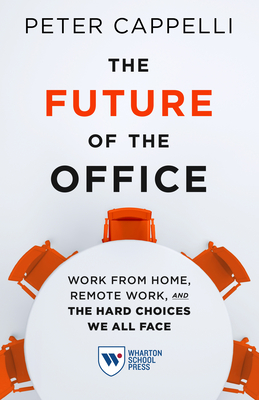The COVID-19 pandemic forced an unprecedented experiment that reshaped white-collar work and turned remote work into a kind of new normal. Now comes the hard part.Many employees want to continue that normal and keep working remotely, and most at least want the ability to work occasionally from home. But for employers, the benefits of employees working from home or hybrid approaches are not so obvious. What should both groups do?In a prescient new book, The Future of the Office: Work from Home, Remote Work, and the Hard Choices We All Face, Wharton professor Peter Cappelli lays out the facts in an effort to provide both employees and employers with a vision of their futures. Cappelli unveils the surprising tradeoffs both may have to accept to get what they want. Cappelli illustrates the challenges we face in drawing lessons from the pandemic and deciding what to do moving forward. Do we allow some workers to be permanently remote? Do we let others choose when to work from home? Do we get rid of their offices? What else has to change, depending on the approach we choose?His research reveals there is no consensus among business leaders. Even the most high-profile and forward-thinking companies are taking divergent approaches: FacebookTwitter, and other tech companies say many employees can work remotely on a permanent basis.Goldman SachsJP Morgan, and others say it is important for everyone to come back to the office.Ford is redoing its office space so that most employees can work from home at least part of the time, andGM is planning to let local managers work out arrangements on an ad-hoc basis.As Cappelli examines, earlier research on other types of remote work, including telecommuting offers some guidance as to what to expect when some people will be in the office and others work at home, and also what happened when employers tried to take back offices. Neither worked as expected.In a call to action for both employers and employees, Cappelli explores how we should think about the choices going forward as well as who wins and who loses. As he implores, we have to choose soon.











